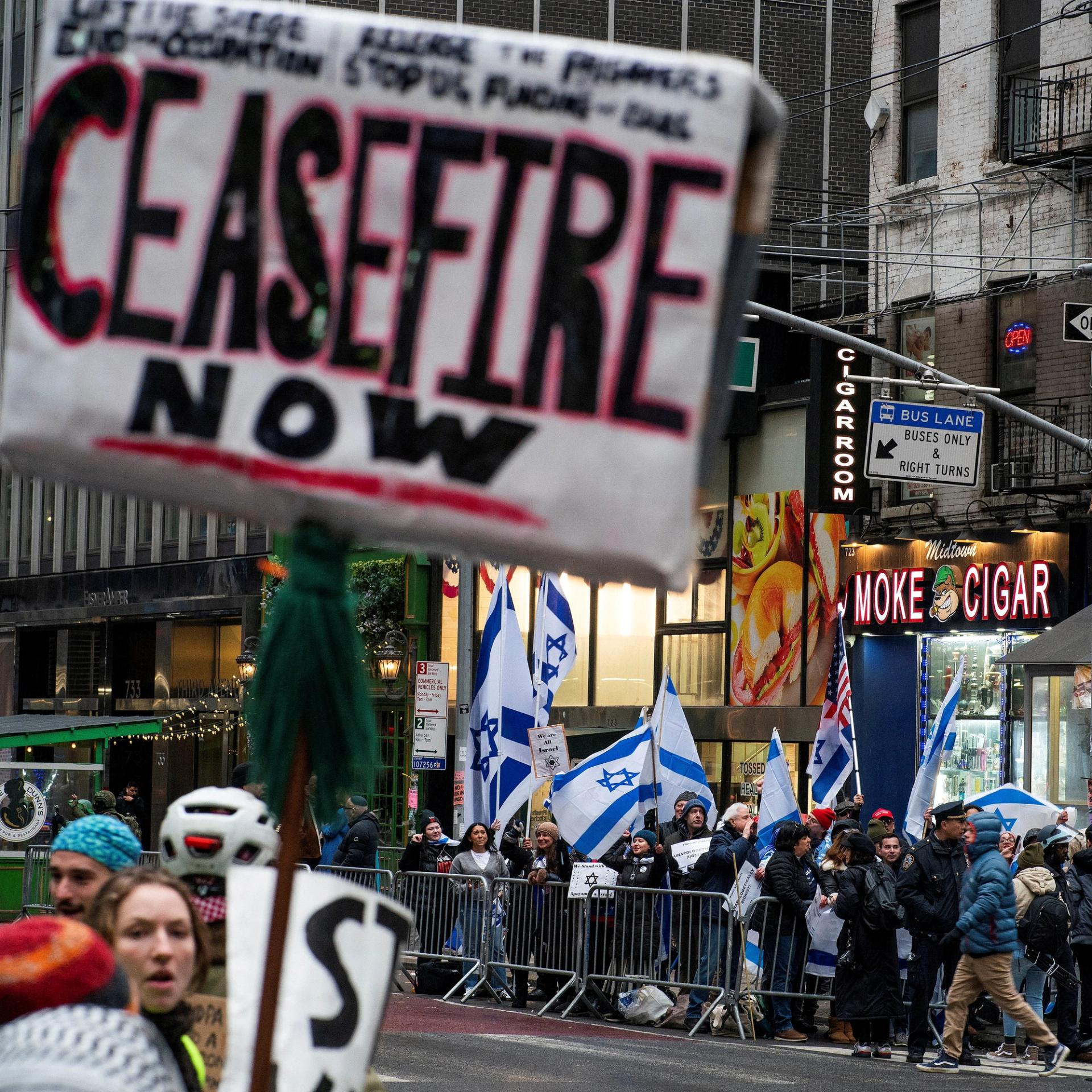The News
Twenty-six left-leaning groups in the U.S. launched a “Reject AIPAC” coalition on Monday, pledging to help any candidate who the pro-Israel lobby group American Israel Public Affairs Committee (AIPAC) spends against, in a sign of deepening Democratic divisions over the Israel-Hamas war.
“Democratic voters overwhelmingly support a ceasefire and oppose sending more blank checks to the Israeli military,” the coalition members — including Justice Democrats, the Working Families Party, and IfNotNow — said in a statement. Together, they plan to build an “electoral defense,” with paid media and field organizing, for anyone being targeted for defeat by AIPAC and its allied super PACs, the United Democracy Project and Democratic Majority for Israel.
That would start with an effort to defend the House Democrats already facing AIPAC opposition in primaries, such as Missouri Rep. Cori Bush and New York Rep. Jamaal Bowman.
In this article:
David’s view
This is shaping up to be a defense cycle for the left, after primaries in 2018, 2020, and 2022 when they built their numbers in Congress. The Reject AIPAC coalition is trying to make a virtue out of that position, acknowledging up front that it will have to win while being outspent.
So, it’ll try to bruise AIPAC’s image with Democratic voters while investing in get-out-the-vote and persuasion campaigns. It picks up an argument that AIPAC targets including Pennsylvania Rep. Summer Lee and ex-Michigan Rep. Andy Levin made last cycle — by handing out bipartisan support, AIPAC has “endorsed 109 insurrectionist election-deniers, 200+ anti-abortion extremists, and is funded by Donald Trump and Nikki Haley’s mega donors.”
The effectiveness of the approach was mixed, but support for Israel simply wasn’t a burning issue in that campaign. It is now, and even if they bristle at activists who disrupt the president’s speeches, Democratic primary voters are far more likely to agree with them on components of Israel policy. In last month’s AP/NORC poll, 63% of Democrats said that Israel had gone “too far” in its response to the Oct. 7 attacks.
Ads from AIPAC allies often attack Democrats over their weak points, whether or not they’re related to Israel. (“We focus on the issues that matter in the district,” AIPAC CEO Howard Kohr told me in 2022.) The counter-strike will be focused on AIPAC and its influence — the left is confident, right now, that warning voters about where this money comes from will move them.
Notable
- Previously in Semafor, we looked at the first race AIPAC’s allies invested in this year — a primary in Orange County where the candidate opposed by AIPAC, Democrat Dave Min, prevailed and got a spot in the November election.
- In Politico, Elena Schneier and Melanie Mason look broadly at AIPAC’s spending: “AIPAC is becoming an existential threat for progressives, who are bracing to be hit hardest.”
